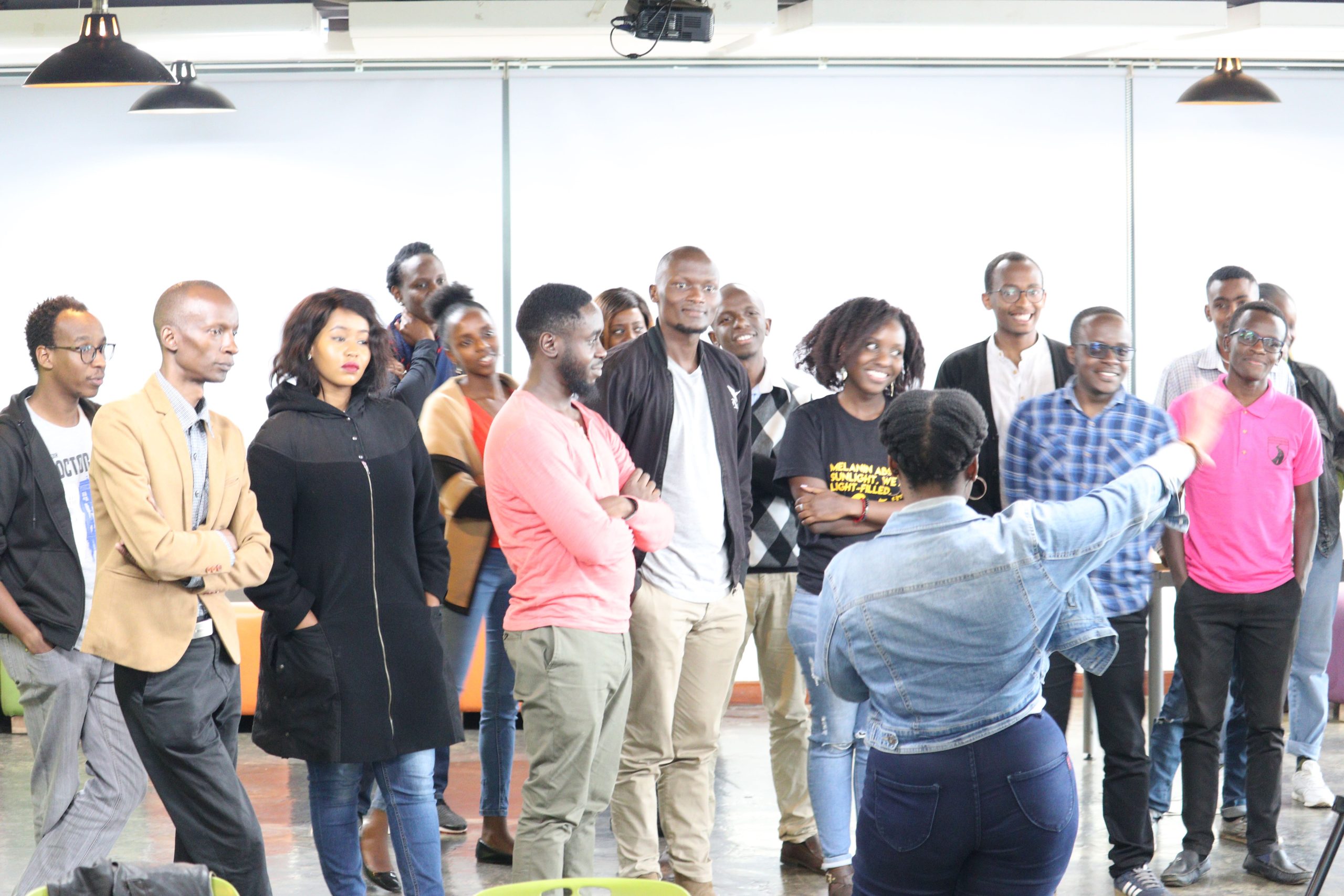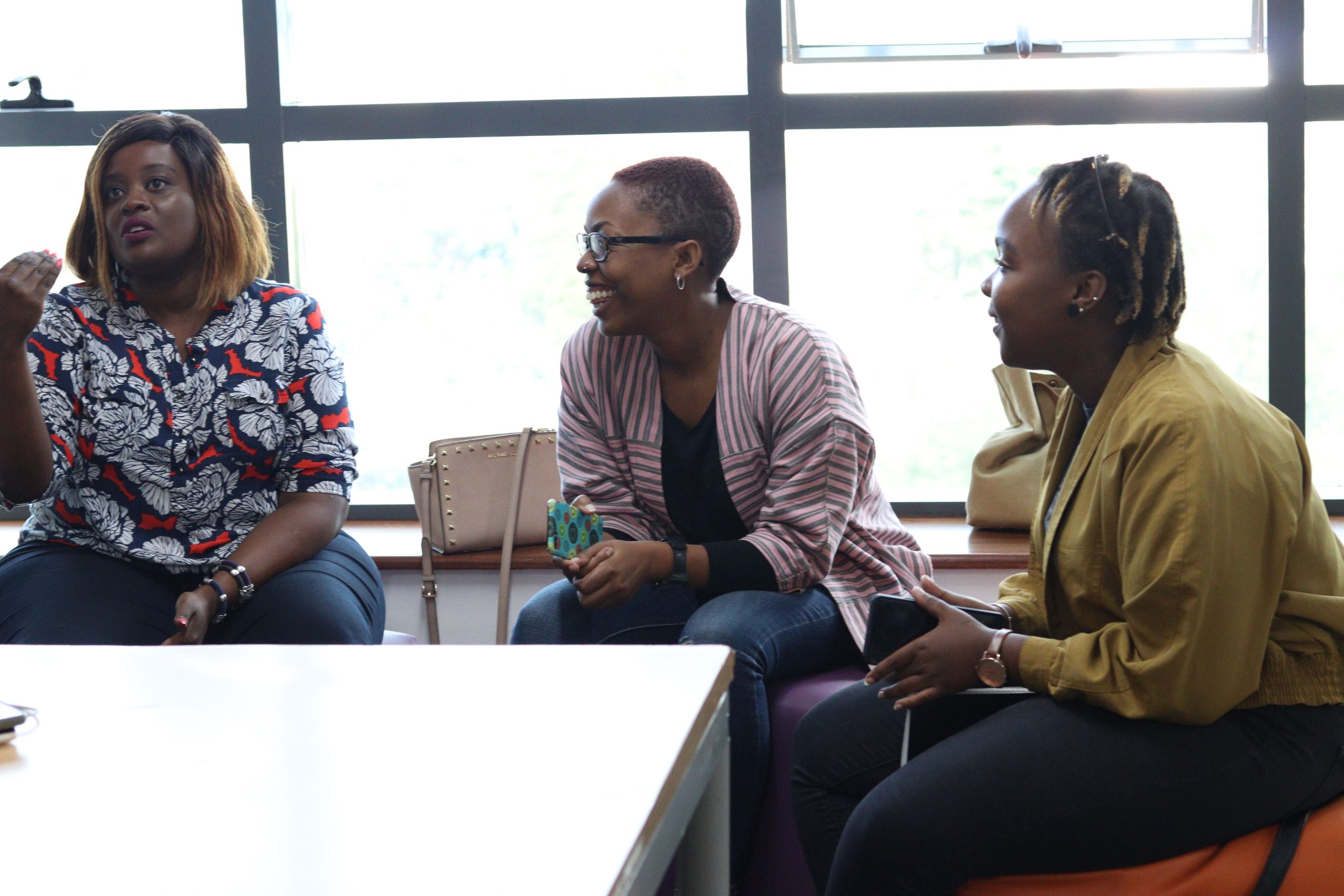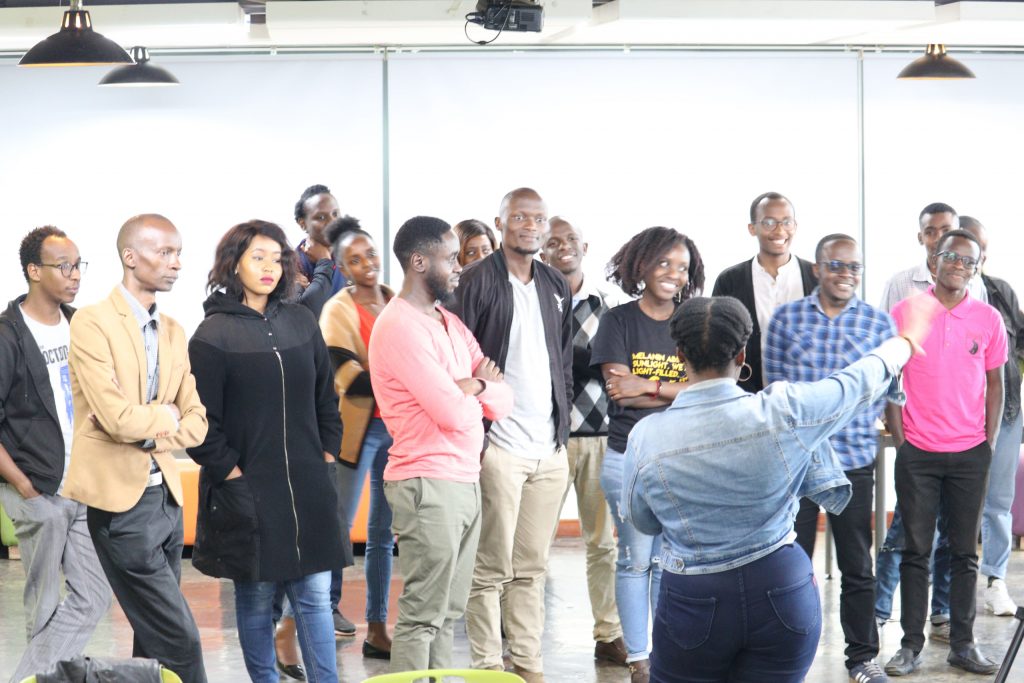While planning out the program for this particular meetup, we (the research and governance team) had three main guiding questions that we thought would get the conversation rolling. The creative industry in Kenya, fairly nascent in its development has had several challenges with examples such as #PayCreativesKE being a visible example of how creatives in Kenya have struggled to be accorded fair and timely compensation. It is expected that this problem stems from a larger problem where the Kenyan landscape is still grappling with the idea that being a creative could be, and is a worthwhile career direction, which can and has the potential to contribute substantially to the economy.

October’s edition, a special mash up between #InternetPizzaFriday and Nairobi Research Buzz (NRBuzz) kicked off late in the afternoon, where the attendees participated in an interactive icebreaker dubbed “Spectogram” in which statements would be read out and the participants would either agree, disagree or remain neutral with the said statements and then go about debunking those statements. These statements narrowed in on the greater society’s view of digital art, and forced the attendees to pick their brains and reconcile their opinions with those of others’. There are many misconceptions about the ease of creating digital content and that most creatives receive lower compensation for their art and creations due to these misconceptions.
An interesting debate that arose during the Spectogram activity was the statement, “digital art is easier to create, hence it should be cheaper”. A compelling argument raised during the debate was that digital creation makes it much easier to recreate offline scenarios that would otherwise be too expensive to recreate, hence shouldn’t the price reflect this?

The last session was a panel graced by Carole Theuri an IP lawyer and the Creative Commons Kenya Lead for Open GLAMs (Galleries, Libraries, Archives and Museums), Chaxy of Jus Kidding podcast and UpSyd Digital Networks, Gathigia Kinyua a freelance photographer and moderated by Mel Mbugua, founder MNM Consulting. While we expected the traction of the conversation to go to monetization of artists’ work in the digital age, it took a different direction with questions mainly directing their questions to Carole on assignment and transfer of rights to other users and owners as well as forms of replication such as sampling and their legal implications.
Historically, copyright for any created work (with the exception of moral rights) in Kenya exists for the lifetime of the creator, and for 50 years post-death, after which the works go into the public domain. One of the common questions arising from this was regarding preventing the replication of work and representation of another’s work as their own by 3rd parties, to which Carole broke down the different types of Creative Commons licenses one can use to determine the extent to which they would wish their work to be reused and replicated.
One key piece of advice meted out was the importance of having contracts set between creatives and the people they share their work. Gathigia says there needs to be clarity on ownership of the creative work, including moral rights. In addition to this, most creatives resonated with the need for users of any creative work to credit the original owners as failure to do so does not widen the network base for these creators and thus, they cannot reach new audiences for both monetary and recognition purposes.
The feedback from the attendees was quite positive with most asking for a sequel for this event with other issues targeting creatives in Kenya and with the opportunity to have more in depth discussion as well as counsel in conducting the legal end of a creative enterprise. We took this under advisement so watch out for the next event!
In response to the high number of creatives interested in getting legal advice as relates to contracting and content ownership and transfer, we are exploring the potential of hosting legal clinics here at the iHub specifically for creatives.
If you are interested, please fill this three question survey that will better guide us as we develop this offering.
In case you have any questions please reach out to us at research@ihub.co.ke
Resources from the event:
